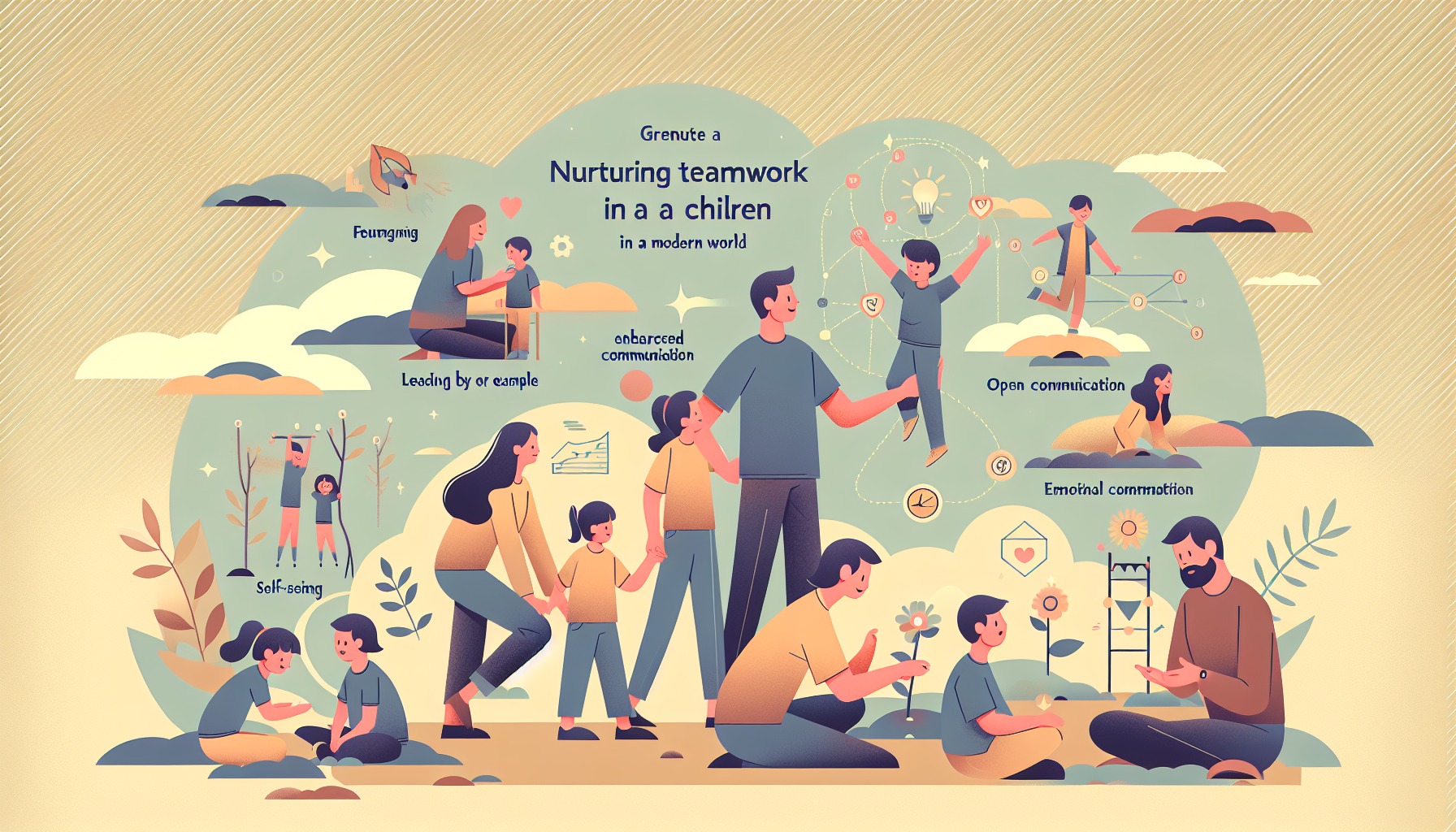Encouraging Teamwork in Children: A Guide for Parents
In today’s fast-paced world, developing strong teamwork skills in children is more crucial than ever. As parents and future parents, understanding how to foster cooperation and social skills in your children can set them up for success. Through effective parenting strategies, you can help your child learn to work well with others, a skill that is valuable throughout life.
Main Points
Children naturally gravitate towards group activities, but nurturing effective teamwork requires guidance. Research shows that children who engage in team activities tend to have better communication skills and higher self-esteem. Teamwork helps meet psychological needs such as safety and autonomy. By participating in team-oriented tasks, children learn to express themselves while considering others’ perspectives.
According to principles of Cognitive Behavioral Therapy (CBT), teamwork helps children develop essential coping mechanisms. By working with others, they learn to manage their emotions and responses in social settings. This development is crucial for their emotional and psychological growth.
Practical Recommendations
- Lead by Example: Demonstrate teamwork in daily activities. Whether planning a family outing or preparing dinner, show your child how to collaborate effectively.
- Encourage Group Play: Organize playdates or enroll your child in team sports. These activities naturally encourage teamwork and cooperation.
- Set Team Goals: Create small projects at home that require collaboration, such as building a fort or organizing a family event. Celebrate achievements to motivate further teamwork.
- Foster Open Communication: Encourage your child to express their thoughts and feelings about team activities. Discuss what went well and what can be improved next time, reinforcing their problem-solving skills.
- Provide Positive Feedback: Acknowledge and praise your child’s efforts in working with others. Positive reinforcement boosts confidence and reinforces cooperative behavior.
Conclusion
Encouraging teamwork in children is an essential aspect of parenting that yields numerous benefits. By supporting your child’s efforts to collaborate and communicate effectively, you are equipping them with skills that are vital for their future. Implementing simple parenting strategies to encourage cooperation and social skills can make a significant difference in your child’s development. Remember, the key is to create a supportive environment where your child feels safe to express themselves and work with others, paving the way for a successful and fulfilling life.

